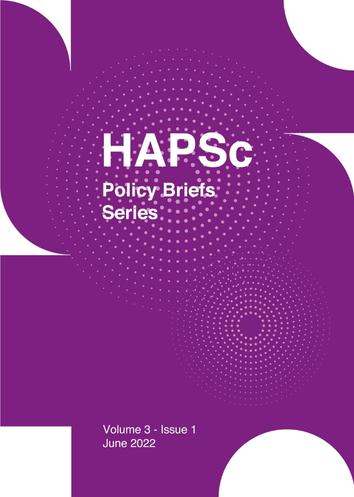EU Searching for Gatekeepers: Lebanon in European Externalized Migration Management

Published:
Jun 29, 2022
Keywords:
Lebanon European Union refugee crisis Externalization of migration EU-Lebanon Compact Migration Policy resilience Non-policy Policy
Abstract
Today 1 per 5 people in Lebanon is a Syrian refugee. Lebanon, largely impacted by the Syrian-refugee crisis, followed a “non-policy” and later confining policy for refugees-management. Based on the EU Global Strategy of 2016, migration is identified as principal threat for European security. Recently, EU has exerted its external migration governance in refugee-hosting countries like Lebanon. Having the Union implemented a resilience-building approach, which ended up ignoring the Lebanese system’s structural deficiencies and not accomplishing the desired outcomes, this Policy Brief recommends:
- Establishment of legal binding EU-Lebanon refugee governance agreement
- Further EIDHR funding conditional to human rights and good governance alignment
- Incentives to Lebanese private sector for refugees’ recruitment
Article Details
- How to Cite
-
Andreou, A. A. (2022). EU Searching for Gatekeepers: Lebanon in European Externalized Migration Management . HAPSc Policy Briefs Series, 3(1), 182–188. https://doi.org/10.12681/hapscpbs.31007
- Section
- Articles

This work is licensed under a Creative Commons Attribution 4.0 International License.
Authors retain copyright and grant the journal right of first publication with the work simultaneously licensed under a Creative Commons Attribution License that allows others to share the work with an acknowledgement of the work's authorship and initial publication in this journal.Downloads
Download data is not yet available.
References
Anholt, R. & Sinatti, G. (2020). Under the guise of resilience: The EU approach to migration and forced displacement in Jordan and Lebanon. Contemporary Security Policy. Contemporary Security Policy, 41(2): 311-335.
Association Council EU- Lebanon (2016). EU-Lebanon Partnership Priorities. Available at: https://ec.europa.eu/neighbourhood-enlargement/system/files/2018-12/eu_lebanon_partnership_priorities_2016-2020_and_their_annexed_eu-lebanon_compact.pdf (Accessed: 14/04/2022).
De Bel-Air, F. (2017). Migration Profile: Lebanon.
EEAS (2021). EU support in Lebanon, Factsheet. Available at: https://eeas.europa.eu/sites/default/files/factsheet_eu_support_lebanon_en.pdf (Accessed: 14/04/2022).
European Commission (2020). European Civil Protection and Humanitarian Aid Operations, “Lebanon Factsheet”. Available at: https://ec.europa.eu/echo/where/middle-east/lebanon_en (Accessed: 14/04/2022).
Facon, C. (2020). The power–interest nexus in responses to Syrian refugee arrivals in Lebanon: Tensions and interactions between the state and the international community. Civil Society Review, 4: 49-69.
Fakhoury, T. (2020). Lebanon as a Test Case for the EU’s Logic of Governmentality in Refugee Challenges. ARIES, 20: 94.
Fakhoury, T. (2020). Refugee Governance in Crisis: The Case of the EU-Lebanon Compact. Migration Governance and Asylum Crises.
Fakhoury, T. & Stel, N. (2022). EU Engagement with Contested Refugee Returns in Lebanon: The Aftermath of Resilience. Geopolitics: 1-26.
Parisoli, F. (2018). How does the EU engage with third countries on asylum cooperation? A comparative analysis of Lebanese and Turkish cooperation with the EU. Doctoral dissertation, University of Geneva.
Pelayo, J. M. (2018). The Eu-Lebanon's Multilateral Refugee Governance. Harvard International Review, 39(3): 39-43.
Seeberg, P. (2018). EU policies concerning Lebanon and the bilateral cooperation on migration and security–new challenges calling for new institutional practices? Palgrave Communications, 4(1): 1-9.
UNHCR (2022). Lebanon “Fact Sheet,” United Nations High Commissioner for Human Rights.


